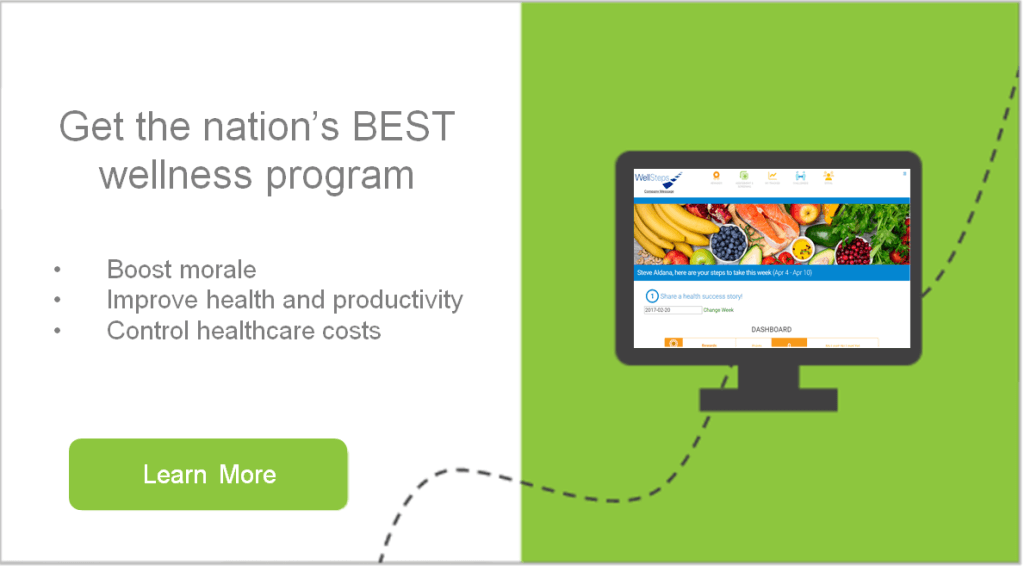As a company with modern employees wanting better health and wellness programs as benefits, the cost may seem daunting. Your leadership may seek to explore what free wellness programs are available first in order to try things out, or mitigate costs.

Unfortunately, this comes with a variety of problems and considerations you’ll need to be aware of before making a commitment to freely available health programs. To truly improve employee health, employers should consider investing in more comprehensive and personalized healthcare solutions.
Free Wellness Programs Are Not One-Size-Fits-All
Free health programs through employers are often cookie-cutter and not overly beneficial for a variety of reasons. These programs usually offer generalized, one-size-fits-all solutions that fail to address the unique needs of individual employees.
Have you tried to convince an entire team of adults to all wear the same size t-shirt with company swag? Yeah, doesn’t fit like we’d hope. As a result, many employees may not find these programs to be relevant or useful. Then you end up with people not even participating and there is minimal impact on overall employee health.
RELATED: The Easiest Wellness Program For Employees in 2023
They Do Not Address Specific Health Concerns
Another issue with free wellness programs is that although they may focus on promoting generic improvements, such as exercise and healthy eating, they’re not addressing more detrimental health concerns that employees may have. For example, an employee with a chronic condition like diabetes or asthma won’t find these generic programs helpful for their own situation.
Additionally, many programs lack a foundation in analytics or healthcare expertise, which limits their effectiveness because they don’t use data to drive positive change. Without proper analysis of an employee’s health metrics, it is difficult to identify areas of concern and develop targeted solutions that can address the root causes of their health issues.
“Many of these programs are not supported by a history of analytics or healthcare expertise, which can limit their effectiveness because they’re not incorporating data for positive change.”
There Is Conflict of Interests With Profits and Costs
Unfortunately, when an insurance company focused on profits rather than healing offers wellness programs, it creates a conflict of interest. Insurance companies, as profit-driven organizations, may design free health programs to benefit their bottom line rather than meet members’ health needs.
So-called “free” programs may actually come with hidden costs like co-pays and other fees that add up over time. The original cost of a program may actually be added onto dollar amounts charged to companies in order to appear free.

Overall, while free health programs from insurance companies may seem like an attractive option, it is essential to carefully consider the potential drawbacks and limitations of these programs before signing up.
RELATED: This Is the Impact of Employee Wellness Programs on Health Care Costs
Limited or No Valuable Tools With Free Wellness Programs
Free health programs offered by insurance companies may have limited tools and resources available for members. For example, a free health program may provide access to online resources, such as educational materials and wellness apps, but may not offer access to more advanced tools such as tele-medicine or personalized health coaching. Many individuals would require more valuable tools in order to make a difference with their health.
People with complex health needs or chronic conditions that require more comprehensive care won’t find the help they need even with freely available lower end tools or services. Free health programs may not have the same level of support and guidance available as traditional healthcare providers. So it is important to carefully evaluate the tools and resources available with any free health program before signing up to ensure that they will be able to help a broad range of health conditions your employees will need help with.
It is important to carefully evaluate the customization options available with any free health program and consider whether they meet your specific health needs. If you have complex health challenges or chronic conditions, it may be beneficial to seek out traditional healthcare providers that can provide more personalized care.
RELATED: The Easiest Wellness Program For Employees in 2023
Needing To Incorporate Paid Health Coaches
Health coaching professionals are trained to work with individuals to identify their health goals, create a personalized plan for achieving those goals, and provide ongoing support and guidance throughout the process. Because you can’t find this kind of support in a free or generic health program, very little beneficial change can be seen for people participating.

One of the key benefits of working with a health coaching professional is that they can provide personalized recommendations that take into account an individual’s unique health history, lifestyle, and preferences. This level of customization is essential for creating a plan and provides support that is more likely to lead to long-term success.
RELATED: 5 Benefits of Providing Health Coaching Services For Your Employees
Pros and Cons of Free Healthcare Programs
Free healthcare programs do have some positive aspects, so it depends on the specific program and its intention. Here are some general pros and cons of free wellness programs. Of course, each individual program and the group of people it helps may vary.
PROS
- Accessibility: free healthcare programs make healthcare services available to people and companies who may not be able to afford it, or their insurance company doesn’t provide these types of programs.
- Prevention: free healthcare programs often focus on prevention with very basic healthy lifestyle changes, which can lead to better health overall and lower healthcare costs.
- Productivity: when individuals have access to healthcare services, they are hopefully better able to maintain good health, which can improve their productivity at work.
- Community health: free healthcare programs can improve the overall health of a community depending on applications and availability.
CONS
- Limited Resources: depending on the program, it likely has limited resources for being free, which can lead to longer wait times, limited access to specialists, and other barriers to care.
- Quality Concerns: they may not always provide the same level of quality care as private healthcare providers, which can lead to concerns about the effectiveness and safety of treatments if those aspects are in the program.
- Funding Challenges: free healthcare programs can be costly to implement and maintain, which can lead to funding challenges and management tension because of lack of funds to run it.
- Burden on Healthcare Providers: free healthcare programs can place a burden on healthcare providers involved in the program, who may be asked to do more with fewer resources.

Overall, free healthcare programs can provide important benefits to individuals and organizations, but they also come with problems that you need to be aware of when selecting programs.
Common Free Wellness Programs Offered by Insurances Companies
Here are some examples of free health programs that insurance companies can offer. You may find one or two that work well for your organization.
Wellness Programs: they focus on promoting healthy behaviors, such as exercise, healthy eating, and stress management. Depending on the insurance and the organization they’re supporting, they can include access to fitness classes, nutrition coaching, and other group or online resources. Sometimes these programs are not supported well because the insurance companies don’t have in-house personnel or people to help manage them inside of companies.
Disease Management: these may be for the higher problematic conditions like diabetes or heart disease. They usually come with education on how to manage the condition. But they often don’t incorporate someone’s specific biometrics that need to be monitored by a coach or medical professional.
Behavioral Health: some insurance companies offer free behavioral health programs that provide support for mental health issues, such as depression or anxiety because they are very prevalent. These programs may include access to counseling services or online resources for stress management.
Health Screenings: these are biometric tests that are standard for basic health screening, like cholesterol or blood pressure checks. These are for quickly identifying people that may be at higher risk to certain conditions and can be pointed to other resources to further prevent their current health status.

Telemedicine Services: more and more often now, insurance companies offer free telemedicine services, which allow individuals to receive medical care remotely. This can be particularly beneficial for individuals who live in rural areas or have difficulty accessing traditional healthcare services, or cannot travel due to family circumstances. However, there is a limit to what can be determined virtually without physical exams or tests being done.
RELATED: How to do Biometric Screening in 2023: The Complete Guide
Common Free Wellness Programs Offered By Companies
Many companies offer free health and wellness programs to their employees as part of their employee benefits package, whether or not they come from a specific insurance company. Here are some common free health and wellness programs offered by companies.
- Employee Assistance Programs (EAPs): these provide confidential counseling and support for employees who may be experiencing personal or work-related problems, like mental health counseling, financial advice, or legal consultations.
- Wellness Programs: health and wellness programs that focus on promoting healthy behaviors, such as exercise, healthy eating, and stress management. These programs may include access to fitness classes, nutrition coaching, and online resources. They usually require a committee onsite or contracts with outside suppliers to help manage.
- Health Screenings: companies may offer free biometric health screenings, such as cholesterol tests or blood pressure checks, to help employees identify potential health concerns and take steps to address them with the assistance of other programs and resources.
- Smoking Cessation: these are to help employees quit smoking and recover from addictions.
- Mental Health Resources: access to counseling services or stress management systems that are more and more prevalent today.
- Financial Wellness: money can be complicated and companies can fully understand this, so providing support for financial education and reducing financial stress can be very beneficial, such as planning services, debt management, and retirement planning.
Altogether, companies may offer a range of free health and wellness programs to their employees, with the goal of promoting better health outcomes and reducing healthcare costs over time.
Next Steps With Considering Free Wellness Programs
Although free health and wellness programs may be tempting, whether already built into your company’s benefits, or provided by your insurance company, we encourage you to carefully consider them. If you’re new to developing a wellness program for your organization, we’re happy to provide a free demo so you can discover options that well be best for you. Contact us today!
